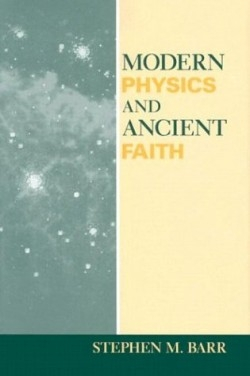Modern Physics and Ancient Faith
This eloquent philosophical book argues that rather than detracting from religious faith, science has proven a great deal of religious doctrine, and modern physics has helped illuminate old beliefs while continuing to augment theology.
Readers who disavow religion as so much dogma will find the author’s arguments logically compelling. “For a person to accept as knowledge only what he had discovered and proved for himself from direct personal experience would put his knowledge at the level of the Stone Age,” he says, dismissing cynics like chaff in the wind. He then embarks on an intellectual journey ranging from the laws of nature to Quantum Theory and along the way takes up free will and discusses whether computers can understand anything. Essentially he equates those who have blind faith in religious “proofs” with those professing scientific explanations denouncing religion.
The author’s ability to explain complex scientific theory in an enlightening manner makes the book worth reading even for people who reject on its face any religion-versus-science debate. Skeptics will feel themselves pulled by the clarity and logic of Barr’s discussions. His description of entropy, illustrated by how energy is dissipated by a rolling ball, is beautiful in its simplicity and hard-hitting in its conclusion.
Barr, professor of physics at University of Delaware’s Bartol Research Institute, does not argue from a static position: instead of claiming that some issues are beyond science, he points out that in some instances “because the price of following facts is often perplexity,” scientists must be patient and bide their time until equipment and theories are developed that can explain some phenomena.
He maintains that instead of harming the credibility of great religions, science has instead mitigated the concept of materialism and strengthened arguments for religious belief. Barr further asserts that religion expects followers to seek rational explanations for belief, not merely accept long-held ideas under the guise of faith.
The breadth of his sources is diverse and intellectually satisfying: Galileo, Augustine, and Stephen Hawking are appropriately noted and their theories and explanations are used to illustrate the author’s contention that science has indeed illuminated religious thinking while diminishing materialism.
Reviewed by
Joe Mielke
Disclosure: This article is not an endorsement, but a review. The publisher of this book provided free copies of the book to have their book reviewed by a professional reviewer. No fee was paid by the publisher for this review. Foreword Reviews only recommends books that we love. Foreword Magazine, Inc. is disclosing this in accordance with the Federal Trade Commission’s 16 CFR, Part 255.

